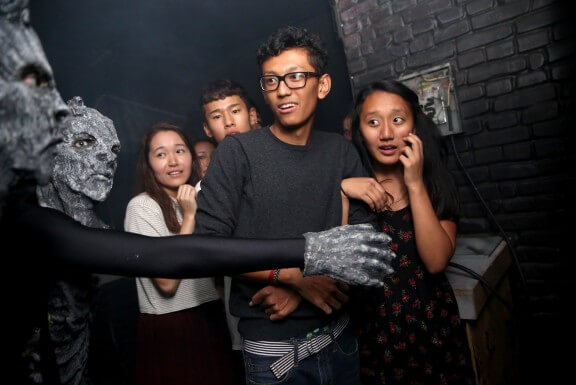 Michael Fassbender and Chiwetel Ejiofor star in “12 Years a Slave.”
Michael Fassbender and Chiwetel Ejiofor star in “12 Years a Slave.”
Credit: Getty Images
Chiwetel Ejiofor just assumed everyone knew the story of Solomon Northup. A free black man kidnapped into the South in 1841, his memoirs have been adapted into the new film “12 Years a Slave,” starring Ejiofor. “I thought it would just be a ubiquitous tale that everyone knew,” the actor confesses.
Though that isn’t so, the resulting film is garnering major raves and serious Oscar talk for bringing a unique look at slavery. For Ejiofor, what makes it stand out is Northup himself. “The first time I saw the script, I didn’t see Solomon in the story. I saw a man,” he recalls. “It was only when I was reading the biography that it struck me it’s about THIS man — this very specific man. This is about Solomon Northup, an individual who has a very fascinating way of looking at the world even within the context of what is happening to him.”
He says Northup, even at his lowest ebb, had unexpected reservoirs of love. “He starts off in a battle for his freedom, but he realizes he’s in a battle for his mind. Anything that is not going to help him he just cuts loose. And hatred ain’t going to help him.”
One scene that really affected Ejiofor while playing was a scene where he’s the victim of an aborted lynching, then is left hanging by the tree, balancing on his tiptoes. “In the book [Northup] talks about how he would have given more years of servitude had they moved him a few feet into the shade,” Ejiofor recalls. “I wanted to feel that connection. If I could put a tiny fraction of that (into the film), it would be an incredible thing to know and to feel and to play.”
Michael Fassbender, who plays Epps, Northup’s final and toughest plantation master, says the film shows how everyone is affected by slavery. “What was happening on the Epps plantation was affecting everybody,” he says. “It’s living hell what the slaves went through. But for the oppressors, there’s a transference of that pain. To be giving out that pain every day, to be living in that abnormal way, it has an effect on everyone.”
He says he didn’t want to play Epps as a one-dimensional monster. “We’re all human beings. We’re all made of the same thing. For me there’s a lot of fear in these characters. They’re all tortured.”
The film is the latest from filmmaker Steve McQueen, who previously directed Fassbender in “Hunger” and “Shame.” For Fassbender it was once again a very challenging experience. “He’s just got a bulls— detector. As actors we sometimes have a tendency — I’ll speak for myself — to use tricks or get comfortable in certain ways. Steve likes to disintegrate that,” he says. McQueen is an experimental filmmaker whose move to more conventional narrative films hasn’t made him too conventional. “He’s often said film is a baby in the art world. It’s only been around for 100 years. So there is no formula. There is no right and wrong. There just is.”
In fact, when Lupita Nyong’o — the young actress who plays Patsey, a slave particularly abused by Epps — came onto set, it kicked him up a notch. “I could see the hunger of a new student coming out of school. That’s such a beautiful thing to see. It made me think I needed to get my s— together.”

















